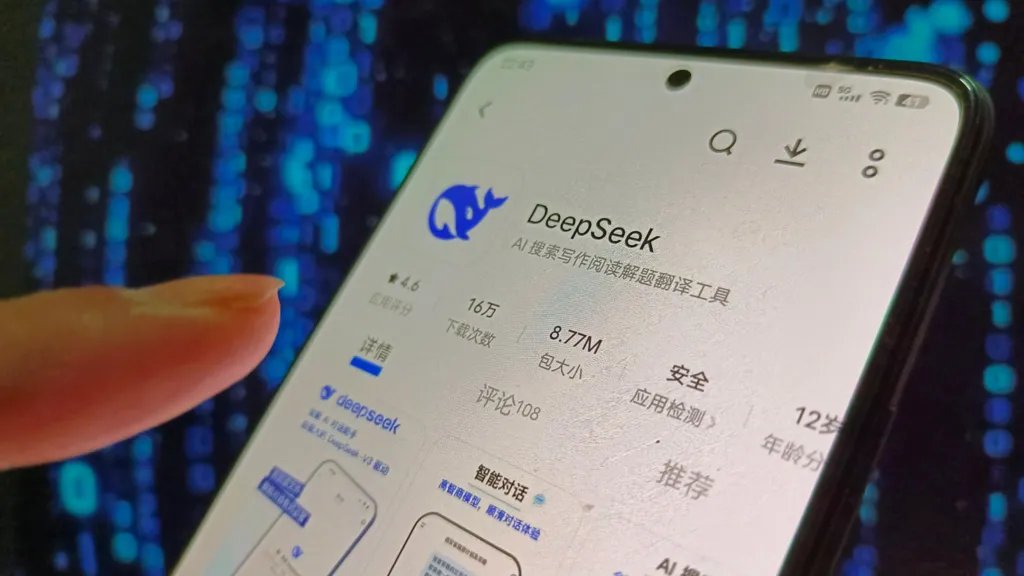The Chinese artificial intelligence (AI) app DeepSeek has overtaken ChatGPT and other competitors to become the top free app on Apple’s App Store in the US, UK, and China.
Since its launch in January, DeepSeek’s rapid ascent has challenged the long-held notion that the US maintains an unassailable lead in AI innovation.
The app is powered by the open-source DeepSeek-V3 model, which its developers claim was created with a modest budget of $6 million—significantly less than the billions invested by competitors. However, this claim has been met with skepticism from some in the AI industry.
Earlier this month, DeepSeek unveiled its R1 model, which the company claims delivers performance comparable to OpenAI’s latest models in tasks such as mathematics, coding, and natural language reasoning.
Marc Andreessen, a prominent Silicon Valley venture capitalist and former advisor to Donald Trump, described DeepSeek-R1 as “AI’s Sputnik moment,” drawing a parallel to the Soviet Union’s historic 1957 launch of the first artificial Earth satellite.
Read more: https://iforinfo.news/trump-says-he-wants-egypt-and-jordan-to-take-in-palestinians-from-gaza/
Training advanced AI models like ChatGPT and DeepSeek typically requires cutting-edge computer chips. However, the US has steadily tightened restrictions on the export of such chips to China since 2021.
To overcome these limitations, Chinese AI developers have adopted innovative strategies and collaborated on projects, producing models that require far less computing power. This breakthrough has drastically reduced costs, potentially disrupting the AI industry.
The rise of DeepSeek has had a notable impact on global markets. On Monday, shares in US-based AI companies such as Nvidia, Microsoft, and Meta fell, while European stocks also faced declines. Dutch chipmaker ASML saw its shares drop by more than 10%, while Siemens Energy, a producer of AI-related hardware, experienced a 21% decline in its share price.
“The concept of a low-cost Chinese AI model wasn’t a focal point for the market, so this development has taken investors by surprise,” said Fiona Cincotta, senior market analyst at City Index. “A low-cost competitor could threaten rivals’ profits, particularly given their significant investments in more expensive AI infrastructure.”
Singapore-based technology equity advisor Vey-Sern Ling told the BBC that such advancements could “potentially derail the investment case for the entire AI supply chain.”
Nevertheless, analysts at Wall Street banking giant Citi warned that while DeepSeek poses a challenge to US-based companies like OpenAI, Chinese firms still face hurdles that may slow their progress.
“In an increasingly restrictive environment, access to advanced chips remains a significant advantage for the US,” Citi analysts noted in a report.
Meanwhile, last week a consortium of US tech firms and international investors announced The Stargate Project, a $500 billion initiative aimed at building AI infrastructure in Texas.



